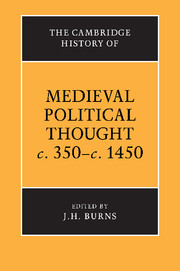Book contents
1 - Christian doctrine
from I - Foundations
Published online by Cambridge University Press: 28 March 2008
Summary
The early Christians understood the Church to which they adhered to consist of a community called out to serve God as his people and focused on Jesus of Nazareth as model for the disciples' filial relation to God. At first entirely Jewish both in composition and in conception, the community was transformed by St Paul into a body of universal extension. In the apostle's conviction God, through Jesus the Messiah and his society, had at last disclosed his eternal plan: that is, to call men and women of all races and conditions in faith and obedience to a Master who acted out and embodied the redeeming love of God for his fallen creation. The huge success of the Gentile mission, led by this Jew of the Dispersion with Roman citizenship, changed the Church from being an ethnic minority group which could hope for easy toleration within an empire generally ready to allow tribal religion, even when it diverged from the official religion of the government. Romans believed that empire had been bestowed not only by their own gods, but also by the gods of the conquered peoples; the latter deities could therefore be taken over. The Jews, whose Maccabaean resistance to assimilation made them respected but little loved in Greco-Roman society, were unmolested in their cultic practices which ‘though very peculiar, were at least ancestral’ (Celsus). But alarm was generated by the Christians dividing families and recruiting from all races and classes: mixing slaves and free; treating ‘brothers and sisters’ within the community as equal (Gal. 3:28; Col. 3:11); above all refusing to accord divine honour to the emperor or to swear by his genius.
- Type
- Chapter
- Information
- Publisher: Cambridge University PressPrint publication year: 1988
References
- 61
- Cited by



